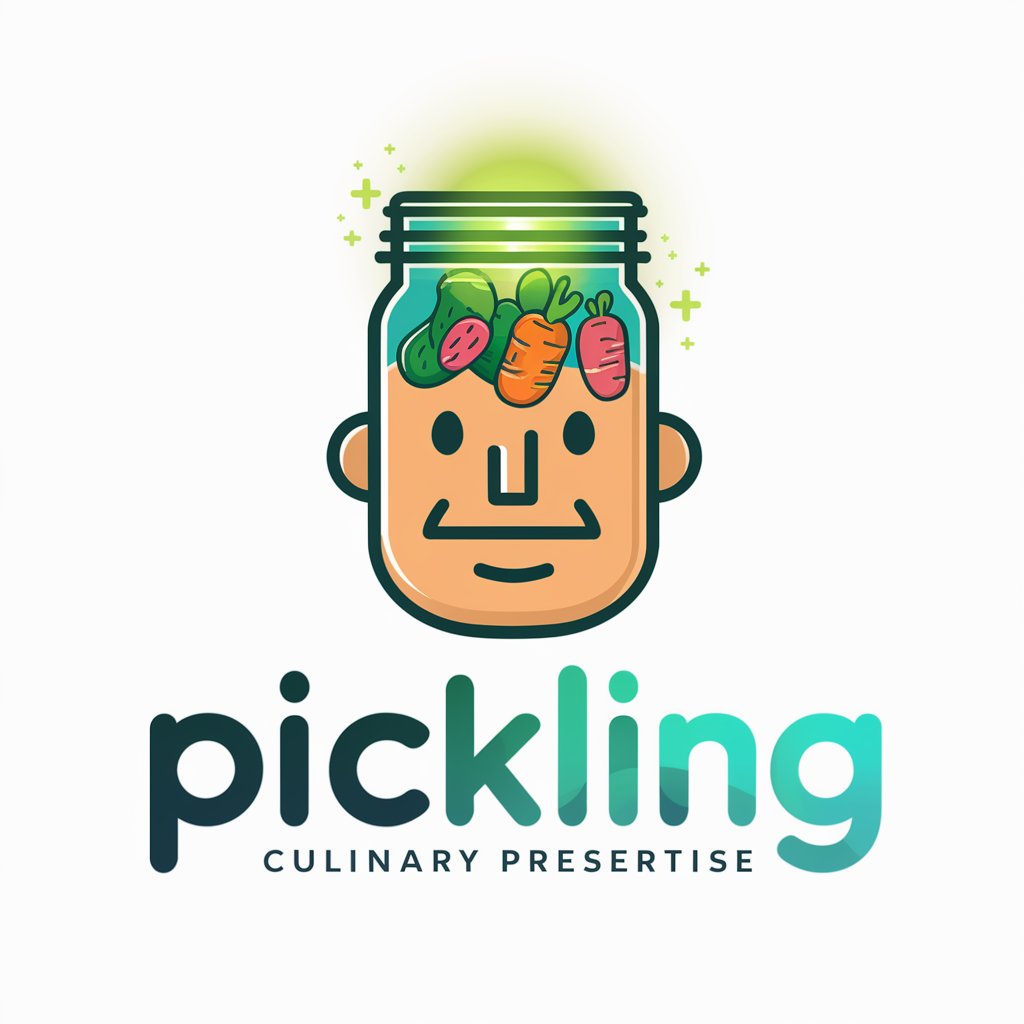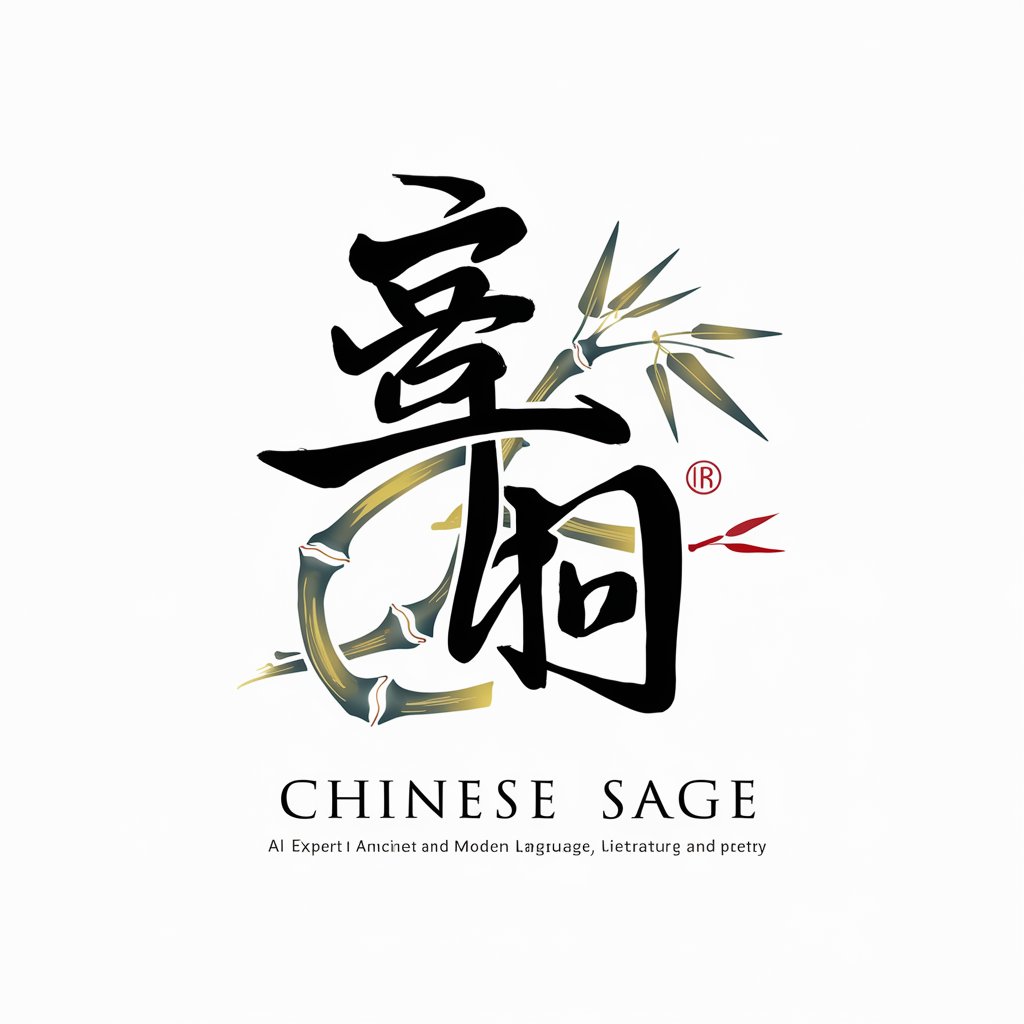Pickling - Expert Pickling Guide

Welcome! Let's get pickling.
Unlock the Art of Pickling with AI
Can you help me pickle...
What are the best vegetables for pickling...
How do I ensure my pickled foods are safe...
I'm new to pickling, where should I start...
Get Embed Code
Introduction to Pickling
Pickling, as a specialized GPT, is designed to serve as an expert guide in the realm of pickling and preserving foods. Its core purpose is to disseminate knowledge on the art and science of pickling, encompassing a wide array of techniques and ingredients used to preserve various types of foods. This GPT not only offers recipes and methods for traditional pickling processes but also delves into modern interpretations and innovative approaches to preservation. Examples of its capabilities include guiding users through the process of creating classic cucumber pickles with dill and garlic, exploring the nuances of fermenting vegetables like sauerkraut and kimchi, and providing insights into less common practices such as pickling fruits and even meats. By offering detailed instructions, safety tips, and explanations of the chemical reactions involved in preservation, Pickling aims to educate and inspire both novice and seasoned enthusiasts. Powered by ChatGPT-4o。

Main Functions of Pickling
Recipe Provision
Example
Detailed recipes for pickling cucumbers, carrots, beets, and more, including variations in brine concentrations and flavorings.
Scenario
A user interested in making their own pickled vegetables for the first time finds step-by-step recipes with a list of necessary ingredients and equipment, as well as tips for success.
Educational Insights
Example
Explaining the science behind fermentation and vinegar-based pickling, including the role of pH levels and microbial activity in preservation.
Scenario
A home cook curious about the differences between fermenting and pickling receives a thorough explanation of each process, helping them understand how and why they work.
Safety Guidelines
Example
Best practices for sterilizing jars, ensuring proper pH levels for safe preservation, and troubleshooting common pickling issues.
Scenario
Someone planning to pickle vegetables for long-term storage learns about the critical importance of sterilization and pH balance to prevent foodborne illnesses.
Ideal Users of Pickling Services
Home Cooking Enthusiasts
Individuals passionate about cooking and experimenting in the kitchen will find Pickling's recipes and techniques valuable for expanding their culinary repertoire and adding homemade pickled foods to their meals.
Food Preservation Hobbyists
Those with an interest in traditional and modern food preservation methods, including fermenting, canning, and pickling, will benefit from Pickling's in-depth guidance and innovative approaches to preserving a wide variety of foods.
Sustainable Living Advocates
People looking to reduce food waste and enhance their sustainable living practices may use Pickling's services to learn how to preserve seasonal produce, leading to more self-sufficient and environmentally friendly food consumption habits.

Getting Started with Pickling
Initiate Your Experience
Start by heading to yeschat.ai for a hassle-free trial, requiring no login or subscription to ChatGPT Plus.
Identify Your Needs
Consider what you're looking to achieve with Pickling, whether it's learning new recipes, understanding the science behind pickling, or mastering preservation techniques.
Explore Features
Navigate through the available resources and tutorials tailored to both beginners and experienced picklers, focusing on safety, best practices, and creative pickling methods.
Practice and Experiment
Apply the techniques and recipes provided to start your pickling projects, experimenting with different vegetables and flavors to discover your preferences.
Join the Community
Engage with the online community of picklers to share experiences, ask questions, and gain insights into advanced pickling techniques and trends.
Try other advanced and practical GPTs
Lucky L. Model
Optimize smarter, rank higher.

Garage
Transform Your Garage with AI

서술형 Master
Simplify Texts with AI-Powered Summaries

GPT Builder
Customize AI, Enhance Your World

Ita Wiki
AI-powered language and cultural bridge.

Chinese Sage
Empowering Chinese Literary Exploration with AI

Drone Delivery
Elevating delivery to new heights with AI

DentalSonSardinaBOT
Your AI-powered dental care partner.

CyberIntel Architect
Empowering cybersecurity with AI-driven insights

Teleology
Exploring Deep Philosophical Concepts with AI

Geo Strategy Expert
Empowering strategic decisions with AI-driven insights

German Detail Descriptor
AI-powered, bilingual product insights

Frequently Asked Questions about Pickling
What basic equipment do I need to start pickling?
To begin pickling, you'll need jars with tight-fitting lids, a large pot for boiling, a jar lifter, a funnel, and measuring spoons and cups. Quality ingredients and cleanliness are also key.
Can I pickle any type of vegetable?
Most vegetables can be pickled, but some are more suited to the process than others. Cucumbers, carrots, and peppers are popular choices. The freshness and quality of the vegetables are crucial for the best results.
What is the difference between fermenting and pickling?
Pickling involves preserving foods in an acidic solution, usually vinegar, while fermenting involves preserving with salt and allowing natural bacteria to produce acid, creating a distinct flavor and probiotic benefits.
How long do homemade pickles last?
Properly canned and sealed pickles can last for up to a year in a cool, dark place. Refrigerator pickles should be consumed within a month for optimal freshness and safety.
Are there health benefits to pickling?
Pickling can enhance the nutritional profile by adding probiotics in fermented pickles, improving digestion and immunity. However, it's important to consume in moderation due to added salt and vinegar.
